Embibe Experts Solutions for Chapter: Reproduction in Plants, Exercise 1: Exercise
Embibe Experts Science Solutions for Exercise - Embibe Experts Solutions for Chapter: Reproduction in Plants, Exercise 1: Exercise
Attempt the free practice questions on Chapter 12: Reproduction in Plants, Exercise 1: Exercise with hints and solutions to strengthen your understanding. THINK ABOVE AND BEYOND SCIENCE PRACTICE BOOKS solutions are prepared by Experienced Embibe Experts.
Questions from Embibe Experts Solutions for Chapter: Reproduction in Plants, Exercise 1: Exercise with Hints & Solutions
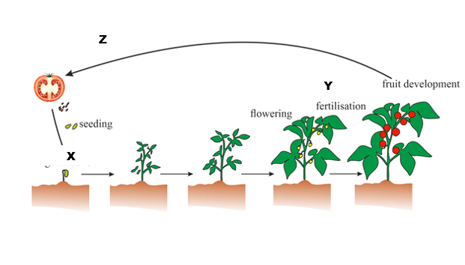
Identify X, Y and Z from the given image. Explain what will happen if Y will not take place.
Rohit saw a pumpkin plant in the kitchen garden. He identified two types of flowers-some flowers had a small swollen structure behind them while some did not. He removed all the flowers which did not have the swollen structure behind them thinking that they were of no use.
Which flowers did he remove? What are the flowers which had a small fruit behind them?
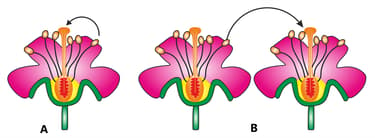
Observe the following figures. What difference do you observe? Image A or B which one is more effective? Explain.
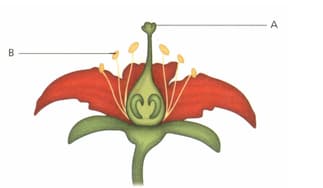
The diagram shows the flower of a lily plant. Identify the structures labelled A and B along with their function.
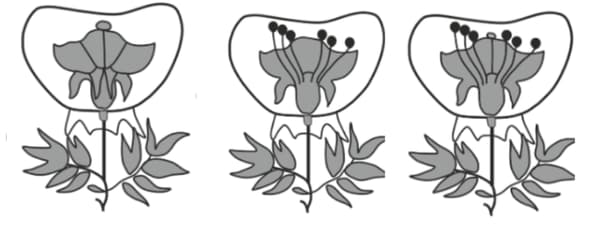
Rita purchesed three different kinds of flowers on the potted plants as shown below and left them undisturbed. Which of these three flowers is most likely to produce fruits and seeds? Explain ur answer.
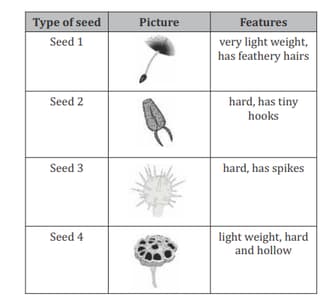
Which seed is most likely to be dispersed by wind? Explain your answer.
Amit cut the stem of a hornwort plant into two pieces. He placed both the pieces under water. After a week, Shekhar found both the pieces growing as new plants.
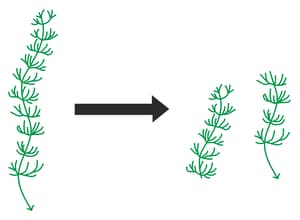
What can be concluded from the activity?
Sohan observed flowers of two different plants X and Y. Flowers of X are large, coloured, showy and produce nectar while flowers of Y are small, dull without nectar. Pollen grains of X are sticky and bigger while pollen grains of Y are small in size and dry. What could be the pollinating agent for both the flowers? Explain your answer.
